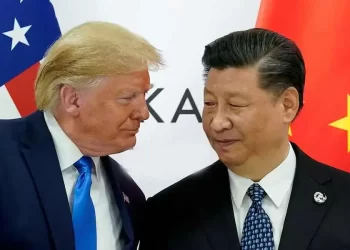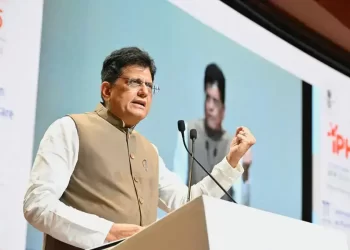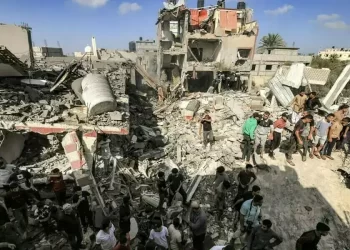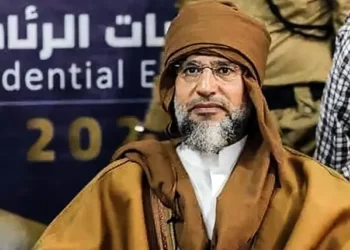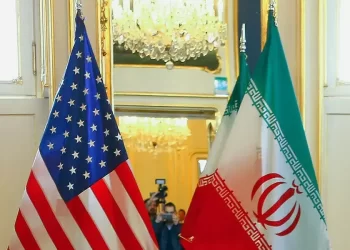Yahya Sinwar’s appointment as the top leader of Hamas formalizes a role he assumed in the early hours of Oct. 7, when the surprise attack into Israel that he helped mastermind ushered in the bloodiest chapter of the Israeli-Palestinian conflict.
He is seen as a hard-liner with closer ties to Hamas’ armed wing than his predecessor, Ismail Haniyeh, who was killed in an explosion in Iran’s capital last month that was widely blamed on Israel and could spark an all-out regional war.
Sinwar was already seen as having the final word on any cease-fire agreement for Gaza and the release of dozens of Israeli hostages still held by Hamas.
But he is deep in hiding inside Gaza, and mediators say it takes several days to exchange messages with him. That raises questions about how he would manage a sprawling organization with cadres across the Middle East.
Hamas has survived the killing of several top leaders across more than three decades, while maintaining a high degree of internal cohesion — and tapping Sinwar, who tops Israel’s most-wanted list, was a show of defiance.
But Hamas has never faced a crisis of this magnitude — and the man who engineered it is now charged with managing the fallout.
Haniyeh was a veteran of Hamas’ political wing who had once served as Palestinian prime minister and in more recent years had managed the group’s affairs from his base in Qatar.
While Hamas has always championed armed struggle, Haniyeh and other exiled leaders had occasionally struck a more moderate tone, even expressing openness to a possible two-state solution, although still officially refusing to recognize Israel.
Sinwar, by contrast, spent more than two decades in Israeli prisons and told interrogators he had killed 12 suspected Palestinian collaborators, gaining a reputation for brutality among people on both sides of the conflict.
He and Mohammed Deif, the shadowy head of Hamas’ armed wing who Israel claims to have killed in a recent strike, spent years building up the group’s military strength and are believed to have devised the Oct. 7 attack. Militants burst into Israel that day, killing some 1,200 people and abducting around 250.
In recent negotiations, “Haniyeh had played a big role in trying to convince Sinwar to accept a cease-fire proposal with Israel,’’ said Hugh Lovatt, an expert on the Israeli-Palestinian conflict at the European Council on Foreign Relations.
Sinwar has stuck to demands for the release of hundreds of Palestinian prisoners, the full withdrawal of Israeli forces from Gaza and a lasting cease-fire — even as nearly 40,000 Palestinians have been killed in the ongoing war, according to local officials, and much of the territory left in ruins.
Israeli Prime Minister Benjamin Netanyahu has vowed to continue the war until Hamas is completely destroyed and all the hostages return home.
“The killing of Haniyeh already brought negotiations back to the drawing board,” said Lina Khatib, an expert on the conflict at Chatham House, a London-based think tank. “This next chess move by Hamas makes negotiations even trickier.”
Sadeq Abu Amer, head of the Palestinian Dialogue Group, a think tank based in Turkey, said that while Sinwar’s elevation might appear to be a “challenge to Israel,” it is still possible to make a deal.
He added that Sinwar, in his new role, “might take a step that will surprise everyone.”
Predicting how Sinwar will lead Hamas is difficult because of the secrecy around him.
Sinwar has not been seen since the start of the war and even before Oct. 7 made only rare public appearances. He is likely in hiding deep inside Hamas’ tunnel network and largely cut off from the outside world.
While he can be expected to set overall policy and make the final decision on any cease-fire deal, Hamas’ day-to-day operations in the Israeli-occupied West Bank and elsewhere are likely to be managed by its exiled leaders in Qatar, Lebanon, Turkey and Iran.
“There are issues that he can make a decision on and there are issues and matters that his deputies and the rest of the members of the political bureau can do,” said Hani al-Masri, a veteran Palestinian analyst who has met most of Hamas’ leaders over the years, including Haniyeh and Sinwar.



